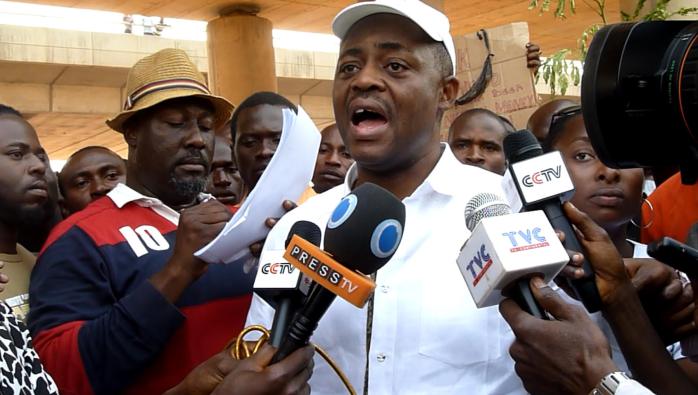Justice Rita Ofili-Ajumogobia of the Federal High Court has refused to squash the money laundering charges against Femi Fani Kayode.
Ifedayo Adedipe (SAN), counsel to the accused had objected to the motion to re-arraign Mr. Fani Kayode by Economic Financial Crimes Commission, special prosecutor, Festus Keyamo. He cited the anonymity of the person from whom the accused received cash payments to the tune of N230 million.
Adedipe said, “Based on Section 167 of the Criminal Procedure Act.
“The accused person is alleged to have received money from a nameless, anonymous person. We have to know the person so we can know who to address. As it is, the charge is vague.
“They alleged that he ‘accepted’. When you accuse somebody of accepting money, clearly the person from whom the money was accepted becomes important.
“The other charges there… one of them accused him of having his wife pay money into his account. These charges cannot be valid,” he said.
However Festus Keyamo put it forward that the giver of the money in a charge of money laundering need not necessarily be disclosed for charges to be implemented.
He said “The notion that the identity be disclosed makes utter nonsense of the very essence of the law prohibiting money laundering because money laundering is a crime that seeks to obliterate the very source of large sums of money found on people.
“It, therefore, follows that the concealment of the giver of the money which is subject to investigation by an accused person cannot defeat a charge of money laundering.
“If we accept the argument of defence, it means that all an accused person can do to defeat the effort of the prosecution is to refuse to disclose from where he derives any large sum of money found on him.
“That will be preposterous and will defeat the object of the law,” Keyamo argued.
Justice Ofili-Ajumogobia agreed with Keyamo, saying in a money laundering charge, the giver of the money must not necessarily be specified.
“The giver must not be stated. I agree that it’s the inability to trace the source of the money that forms the element of the charge,” the judge said.
According to her, the defence counsel was wrong in his arguments.
“It’s an abject misconception for the defence counsel to raise the objection,” Justice Ofili-Ajumogobia held.
The judge further held that the fact it was merely stated that Fani-Kayode received money without stating who gave it to him does not in any way invalidate the charge.
“This does not affect the validity of the charge,” she said.
The judge held that the emphasis is on the concealment of the ownership of property which amounts to the crime of money laundering.
“The accused is directed to plead to the charges,” Justice Ofili-Ajumobia ruled.
The first amended charge read: “That you Chief Femi Fani-Kayode on or about the 22nd day of November 2006, whilst serving as Minister of Aviation of the Federal Republic of Nigeria, in Lagos, within the jurisdiction of this Honourable Court made a financial transaction exceeding N500,000, which was not done through a financial institution by accepting cash payment of N10 million which sum was further carried in cash to First Inland Bank, Plc, Apapa Branch (now First City Monument Bank Plc) through one Mark Saviour Ndifreke (your close associate now at large) and put in an investment Account in your favour for 90 days contrary to Section 15(1)(d) and punishable under Section 15(2)(b) of the Money Laundering (Prohibition) Act, 2004.”


